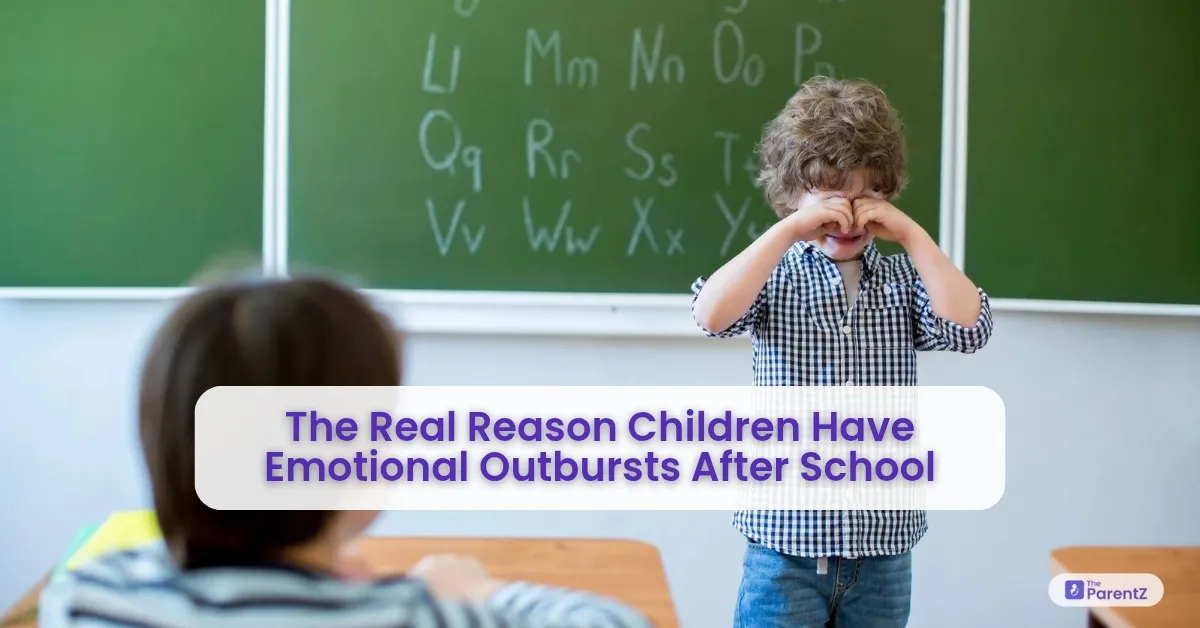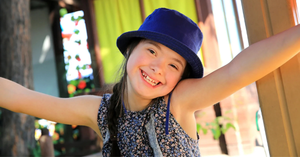If you’ve ever greeted your child after school with a warm hug only to be met by tears, or a full-blown meltdown, every parent has witnessed those days. That time, the confusion hits hard ‘They were fine this morning... what happened?’
Well, welcome to the club of parents who’ve witnessed the mysterious, almost predictable phenomenon known as after-school restraint collapse — where kids hold it together all day long, only to unravel the moment they step back into the safe space of home.
The truth is— these outbursts aren’t a sign of bad behavior. They’re actually the result of your child doing their very best all day long.
Read below this article to explore the real reason why kids have emotional outbursts after school.
Why Do Kids Save Their Meltdowns for Home?
During the school day, children are on their best behavior. Whether it’s following classroom rules, handling peer dynamics, staying focused, or just keeping their emotions in check — they’re essentially working overtime in an environment that’s structured, stimulating, and often emotionally taxing.
Experts suggest that for young children, school demands significant mental energy, and much like adults after a long workday, kids reach an emotional tipping point. The difference is, their coping tools are still under construction.
So when they finally get home — their safe place, where unconditional love lives — their emotional floodgates swing wide open. The result? Tears, tantrums, whining, or, sometimes, stone-cold silence.
The Science Behind the Outburst
Emotional self-regulation is a developing skill, not a fully formed one. According to child psychologists, the human brain’s prefrontal cortex (the decision-making and emotional regulation center) doesn’t fully mature until the mid-20s. So for a 6-year-old who’s been sitting still, sharing, taking turns, and solving problems from 9 to 3, the mental strain can quietly pile up.
In fact, studies show that children, especially between the ages of 4 and 10, experience higher cortisol levels during the school day compared to when they’re at home. When that bottled-up stress meets the comfort of your presence, the emotional dam breaks.
It’s Not Misbehavior — It’s Trust
Here’s the part many parents miss: these outbursts are rarely personal. If your child seems to lose it only around you, take it as a weird, backhanded compliment. You’re their emotional safety net.
Much like adults who vent to close friends after holding it together at work, kids save their rawest emotions for the people who make them feel most secure — you.
How to Support Your Child Through After-School Meltdowns?
Here’s how you can create space for your child to decompress safely.
- Offer quiet time: Rather than launching straight into homework or questions about the day, let them snack, unwind, or cuddle with a pet.
- Label emotions: Help them name what they’re feeling. Saying ‘You seem frustrated’ gives language to their storm of emotions.
- Prioritize connection over correction: Their behavior is communication. Respond with empathy, even if boundaries need to be set later.
Final Thoughts
The real reason children have emotional outbursts after school isn’t defiance or attitude — it’s simply emotional exhaustion wrapped in a pint-sized package. They’ve spent the day holding it all together, and home is where they feel safe enough to fall apart.
It’s about a full heart, an overworked brain, and the relief of finally, finally being able to just be.








Be the first one to comment on this story.